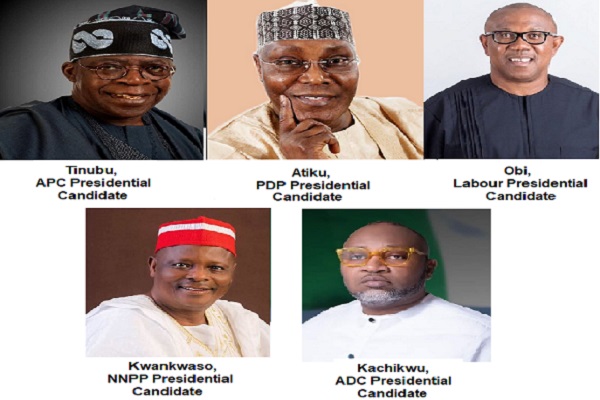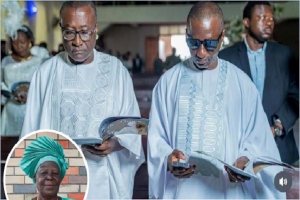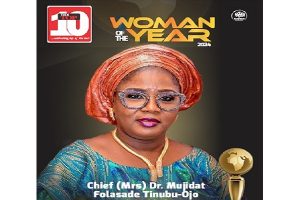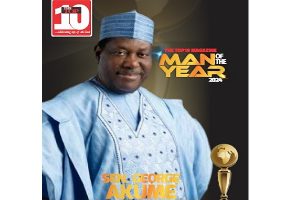
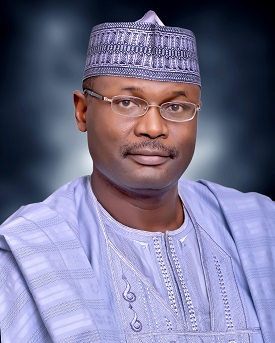
It is something of a national consensus that the 2023 presidential election will be probably the most important election in Nigeria’s political history. It will be an election like no other. There are signs all over the country to suggest that the election will matter to Nigerians more than others before it. The interest shown by Nigerians, especially youths, in next year’s election is unprecedented. To many, it is going to be a make-or-break election – the election that will define the country’s future, and that of its citizens. For the country, it is now, or never. The reasons are not difficult to fathom.
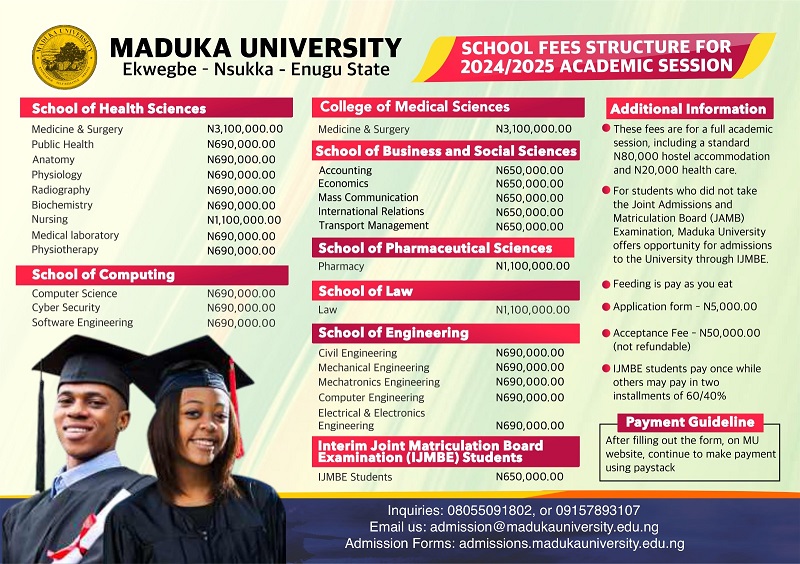
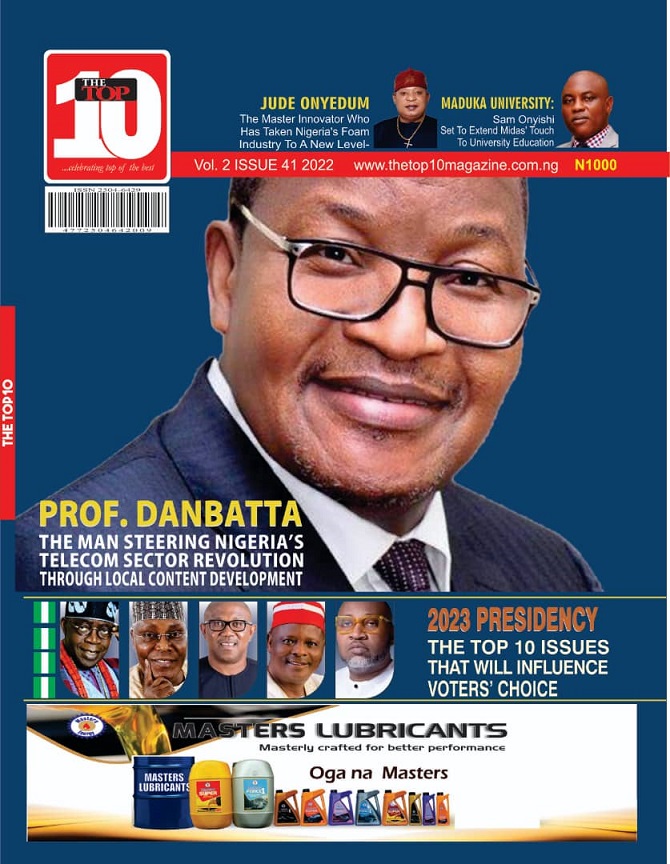
Firstly, there is a general feeling among Nigerians that 23 years of democratic governance have not translated to the socio-economic dividends that are supposed to come with democracy, more so after many decades of military dictatorship that confined a potentially great country to a stunted growth. To say that the hopes of the citizenry for a better Nigeria have been systematically dashed by successive administrations since 1999 would be to make a gross understatement. It is deeper than that.
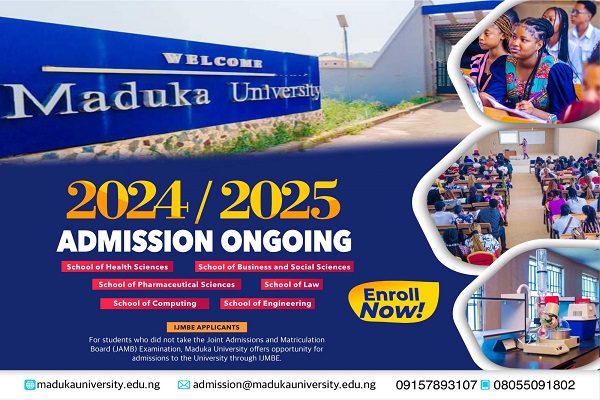
Across the length and breadth of Nigeria today, there is a feeling of not just despair and hopelessness, but anger, as well. Nigerians have watched helplessly as the country has continued to drift in virtually all areas of existence, socio- economically and, more worrisome, security-wise.
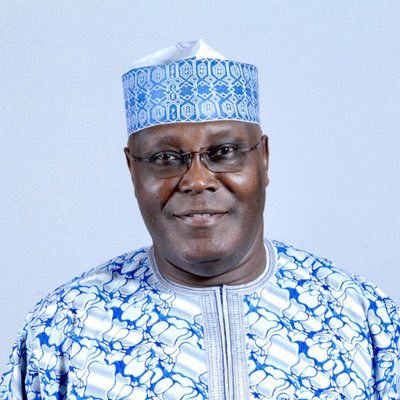

President Muhammadu Buhari came into office in 2015 in a groundswell of public support and goodwill, perhaps more than any leader in recent history. If the expectations of Nigerians were unprecedentedly high, it was because he promised to bring the change they earnestly yearned for, especially in the three key areas on which he focused his campaign, namely, economy, security and fight against corruption.
But with more than seven years down the road; with barely eight months to go in his eight- year tenure, all indices of human development suggest the country is worse off today than when Buhari assumed office. There’s a higher rate of unemployment; poverty has assumed a new dimension, with more than 90 million Nigerians said to be living below the poverty level. Nigeria, the ninth biggest oil producing country in the world and sixth biggest in the Organization of Petroleum Exporting Countries, is currently the poverty capital of the world. By press time, university students have been at home for more than five months, courtesy of a long-drawn strike by the Academic Staff Union of Universities.
In no other area has Nigerians apparently lost hope in the country than in the area of security. From insurgency that was confined to the North East in 2015, the entire country appears today to be enveloped by insecurity in all its ramifications – terrorism, banditry, kidnapping for ransom, armed robbery, etc. It is no longer safe to travel by road, by rail, and even by air. The main news that Nigerians are daily fed with by print and electronic media is that of abductions in one part of the country, or mass killings in another part, with the government appearing to be powerless.
An indication that insecurity in the country has reached unprecedented level was the threat by terrorists, in July, to kidnap Buhari and Governor Nasir el-Rufai of Kaduna State. As if to show the threat was not an empty one, the terrorists attacked an advance party that was on its way to Katsina State ahead of the president’s visit for celebration of the Eid –el Kabir festival. They also attacked a detachment of the Brigade of Guards, the elite squad that protects the president and his family, right in Abuja, the nation’s capital.
The other reason why the 2023 general election will be a turning point in the country’s history is the belief and faith Nigerians now have in the electoral system. Before now, Nigerians were not enthusiastic about participation in elections because of the general belief that votes did not count. It was something of a norm that results declared at collation centres were at variance with those announced at venues where elections took place.
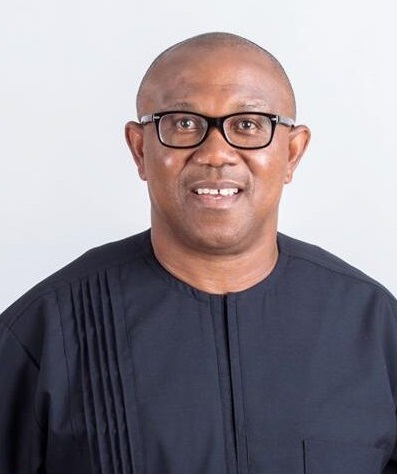
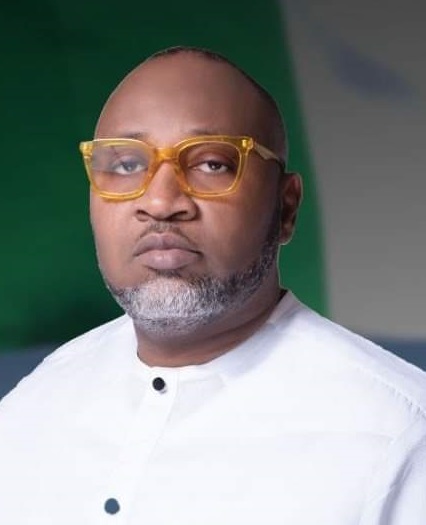
It was so because elections were characterized by snatching of ballot boxes for the purpose of stuffing them with fake results outside election centres, falsification of results, voter intimidation and declaration of fictitious results for elections that did not take place. Many Nigerians did not see why they should waste their time to go out to vote, with the high possibility that their votes would count for nothing.
Now, with new electoral laws in place, election malpractices that were associated with previous elections have been greatly minimized, if not totally eradicated. With the possibility of election results being released online, real time, snatching and stuffing of ballot boxes, falsification of results and declaration of fictitious results are no longer attractive, because they serve no purpose. Nigerians can see and follow the trend of results as they are being announced on their televisions sets and mobile devices, from the comfort of their homes. This was evident in the off-season governorship elections in Anambra, Ekiti and Oshun states.

The unprecedented rush by Nigerians to take part in the continuous voters registration of the Independent National Electoral Commission (INEC), which forced the commission to shift the closing date for the exercise from June 30 to July 31, 2023, via a court order, is indicative of the willingness, readiness and commitment of the citizenry to have a say in the selection of the leadership of the country, next year. Even after the court-ordered extension, eligible voters who could not register within the period the exercise lasted still asked for further extension. At the time the curtain fell on the exercise, the number of registered voters in the country had risen from 84 million previously to 96.2 million. This, certainly, marks a new dawn in the country’s political life and a significant step towards attaining maturity in democratic governance.
As the run-up to the 2023 general election begins with electioneering, an exercise that will see presidential flagbearers travel the length and breadth of the country over the next five months, 10 key issues will remain on the front burner to shape the decision of voters on the choice of Buhari’s successor. The issues, which are captured in vivid detail in the following pages, are age, state of health, educational attainment, experience in governance and knowledge of the economy. Others are knowledge of international affairs, vision, capacity, acceptability across ethno-religious lines and integrity
Age
By virtue of the Not Too Young to Run Act that became operational on March 31, 2018, the minimum age requirement for qualification for the office of Nigeria’s president is 35. Neither the law nor the 1999 Constitution, as amended, stipulates the maximum age requirement for the office of president. There is no age limit for the country’s president.
Despite the fact that there is no ceiling on how old a person can be to qualify for election into the office of president, discussions in the public sphere in the last few years have suggested that Nigerians have become more and more interested in the age of anybody that seeks election into the office of the country’s president. Several factors account for this.


There is a common belief that younger leaders have the physical and mental alertness that is required to stand the rigours of an office as high as that of the president. This is more so for a country like Nigeria that is currently in dire straits and facing challenges on all fronts; a country that is desperately in need of a purposeful leader with a clear vision of where to take the country, someone who would not be hamstrung by age to be able to maintain the sharp mind and physical mobility that are necessary for whoever finds himself occupying the seat of power in Abuja.
This line of thinking is encouraged by historical facts. Nigeria’ first five military leaders were under the age of 45 when they assumed office. Major General Johnson Thomson Umunakwe Aguiyi-Ironsi was 42 when he became the country’s first military ruler after the first coup of January 15, 1966. General Yakubu Gowon, his successor, took office on July 29 of the same year at 31, following the bloody coup in which Aguiyi-Ironsi was killed. General Murtala Mohammed succeeded Gowon through a bloodless coup on July 29, 1975, at the age of 37. General Olusegun Obasanjo, who succeeded Mohammed after the latter was killed in an ill-fated coup on February 13, 1976, was 39. Major General Muhammdu Buhari assumed office as military head of state on January 1, 1984 at the age of 41after yet another military coup that cut short the second term of President Shehu Shagari, thus effectively terminating the life of the Second Republic.
The Not Too Young to Run Law, a product of a sustained agitation by youths for inclusion in the country’s political leadership structure and spearheaded by Yiaga Africa, was recognition of the important role young people could play in the country’s affairs, at the leadership level. It was borne out of increasing frustration with the class that is generally referred to as recycled leaders who have over the years demonstrated lack of capacity to make Nigeria live up to its claim, at the time of independence, of being the giant of Africa. In fact, if anything, as the youths argue, the older generation of leaders has systematically led the country down the valley, to its current situation in which it has become a laughing stock in the comity of nations, occupying a low position in virtually all indices of human development.
The agitation by the youth for more inclusion in the country’s political leadership is bolstered by the fact that young people constitute more than 60 per cent of the country’s population. The belief is that if they cannot get someone at the age stipulated by the Not Too Young to Run Act into the office of president, they can at least influence the election of someone within the age bracket that is considered not too far from theirs. Interestingly, elders, mainly those outside the two main political parties – the All Progressives Congress (APC) and the Peoples Democratic Party (PDP), share this sentiment.
The global trend in the last decade or so has suggested a growing preference for younger leaders. With the exception of the United States that has a sitting president (Joe Biden, who assumed office at 78) and his predecessor (Donald Trump, who was elected at 70), most leaders around the world have been elected at relatively younger ages. In the United States, Barack Obama was elected president at 47 in 2009. Emmanuel Macron assumed office as president of France in 2017 at the age of 39.
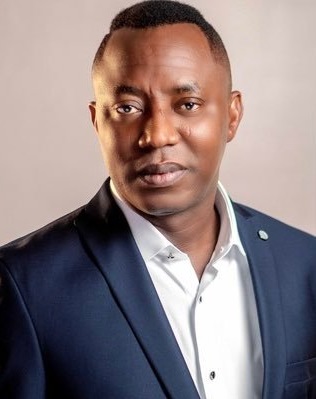
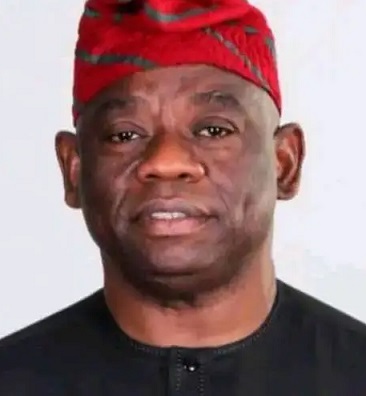
In the 2023 election, Nigerian voters are going to show more than a passing interest in the age of the president of the country. This is important because of the unwritten policy and belief that every president would want to exercise his or her constitutional right to vie for a second term.
State of health
The health of a Nigerian leader was never an issue of public interest until Alhaji Umar Yar’Adua became president in 2007, succeeding Olusegun Obasanjo who kick-started the current democratic dispensation as the first elected president in the post-military era, in 1999. The first indication that the health status of Yar’Adua, then campaigning to be president on the ticket of the Peoples Democratic Party (PDP), was going to be an issue emerged during the exercise, when rumours became rife that his health and, by extension, fitness for the job for which he was campaigning was suspect.
The rumours began to gain more grounds when it appeared he was spending more time in hospital than on the campaign field. Obasanjo, then campaigning for him, added a comic angle to what was otherwise a serious national issue when he put a call to the sick presidential candidate in a hospital in far-away Saudi Arabia, at a campaign stop asking, in a rather humourous manner, “Umaru, are you dead”? The phone was on speaker, and Nigerians could hear the incoherent and muffled voice of Yar’Adua at the other end struggling to give assurance that he was alive.
That joke in the course of the campaign turned out to be an expensive one for the country as Yar’Adua, barely two years after assuming office as president, fell sick with an ailment that was kept a well-guarded secret. After many months of incapacitation in Saudi Arabia, the sick president was brought back into the country in the cover of darkness in a manner that heightened the mystery surrounding his illness.
Yar’Adua’s death, barely two weeks after his return, created a constitutional crisis. The 1999 constitution, at that time, did not provide for the death of a sitting president and what would happen in such a situation. It took the invention of what was called The Doctrine of Necessity by the Senate which passed a motion authorizing the country’s chief justice to swear in Goodluck Jonathan, the then vice president, as Yar’Adua’s successor.
At the last count, Buhari has spent, cumulatively, about 200 days on medical tourism (between February, 2016 and June, 2021) to the United Kingdom, battling one ailment after the other, the only known one being ear infection. During the longest trip which lasted 104 days in 2017, Nigerians were daily fed with rumours of his death on social media, against the background of official secrecy on the state of this health. A physically emaciated Buhari would tell Nigerians, upon return to the country, that he had never been that sick in his life.
The two aforementioned cases have sparked the interest of Nigerians in the health status of whoever aspires to be the country’s president. Having lost a sitting president to illness while in office, and had one spend considerable time in a foreign hospital due to illness (both went into the office with the illnesses), many Nigerians would not be very enthusiastic about voting in someone whose state of health could become a subject of anxiety to the public, while in office.
In some parts of the world, the health status of anyone aspiring for public office, especially an office as high as that of the president, is an issue of utmost importance to the public. In some cases such people are required to disclose their health status for public information and scrutiny. When Senator John McCain was campaigning to be American president in 2008, the controversy surrounding his state of health forced him to publish full details of his status to prove his fitness for the job for which he was aspiring.

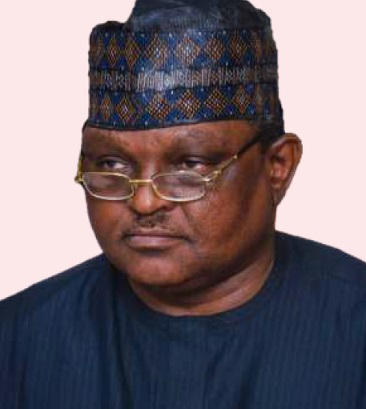
There is no such requirement in Nigeria, the reason it was possible for Yar’Adua and Buhari to get elected into office with ailments that would adversely affect their ability to discharge the responsibilities of their office as and when expected.
That loophole may provide an opportunity for someone with a health issue that is unknown to the public to get elected president in 2023. And because there is no such requirement, an attempt from any quarter to raise the issue of proof of medical fitness for presidential candidates would be stoutly resisted by a candidate’s party and supporters who would see such a move as purely political.
The first time a Nigerian leader stayed outside the country for a long period on account of ill health was in 1986, when the then military president, General Ibrahim Babangida, spent over one month in a French hospital to treat a leg ailment known as radiculopathy, an ailment caused by an injury he sustained from a bullet wound during the Civil War.
In the case of Babangida, there was no anxiety in the country during his absence because his information managers kept Nigerians regularly updated regarding his treatment and recovery. The secrecy that surrounded the medical tourism embarked on by Yar’Adua and Buhari has made Nigerians to be interested in the health status of anyone aspiring to be the country’s president.
Educational attainment
The 1999 Constitution, as amended, stipulates that for one to be qualified to hold any elective office in Nigeria, he or she must have studied up to class five (SSCE3) in secondary school. That is the minimum educational requirement. The constitution is silent on the maximum requirement, meaning that there is no limit to how much anyone must be educated to be qualified to be elected into any office.
However, despite this very liberal educational requirement, many elective office seekers have been caught in the web of scandals involving certificate forgery, usually at a level higher than the constitutional requirement, when all that was required was proof of studying up to form five in secondary school – not necessarily obtaining the West African School Certificate. It is either they managed to conceal the deficiency and got elected into office only to be discovered and disgraced out of office, or they had their ambition cut short at the pre-election stage while filing papers to contest election.
Barely two years into office as speaker of the House of Representatives in 2000, Salisu Buhari was discovered to have allegedly forged a degree certificate of the University of Toronto, Canada, to get elected into office. The scandal which followed the discovery that was brought to public attention by the News magazine forced Buhari to resign from office after apologizing to Nigerians.
On Thursday, February 13, 2020, the Supreme Court put paid to the dream of Biobarakuma Degi-Eremienyo of becoming the deputy governor of Bayelsa State when it ruled that he presented false information in his credentials and papers submitted to the Independent National Electoral Commission (INEC) as qualification to be running mate to David Lyon, who contested to be governor of the state in the November, 2019 governorship election on the platform of the All Progressives Congress (APC).
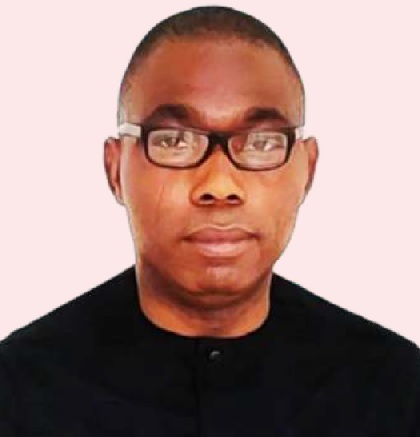
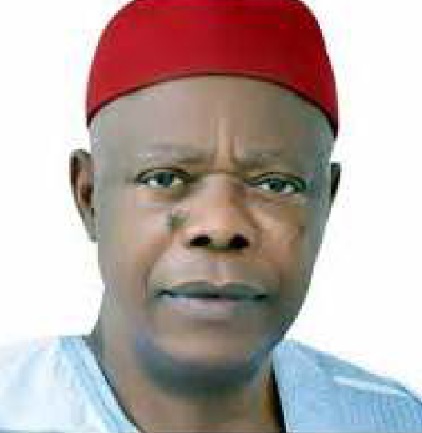
The apex court upheld an earlier ruling of the Federal High Court, Abuja, that there was no connection between the names Degi-Eremienyo had on his First School Leaving Certificate, his first and second degrees, as well as the affidavits he swore. There were speculations of allegation of certificate forgery involved in the case.
The trend among leaders around the world today shows that they are mostly very educated, up to university level, with some holding post-graduate degrees and certificates. Some hold doctorates. This is necessary in order to be able to handle the complex task of running a country in a world that is rapidly evolving in all spheres of human existing – economically, politically, technologically and socially.
In Nigeria, the average educational qualification of leaders during the military era was SSCE. The first Nigerian leader with a university degree, whether military or elected, was the late Umar Musa Yar’Adua. The leader with the highest educational qualification was Goodluck Jonathan, who holds a PhD.
In the 2023 general election, Nigerians are going to insist on a president that possesses beyond the constitutional requirement of having studied up to form five in secondary school. In a world where the average leader holds a first degree, they are going to be interested in a candidate who is sufficiently educated (preferably a first degree) to have a full grasp and understanding of issues that affect their everyday existence, and can independently take decisions without having to rely on the advice and support of subordinates who are more educated and better informed than him.
Experience in governance
Nigeria’s problems appear to get more complex by the day, perhaps more than they were at the advent of the current democratic dispensation in 1999, and far beyond what obtained during the military era. The country is currently trying to grapple with the problems of insecurity, unemployment, poverty, and a general state of despair perhaps never witnessed in its history. The country is more divided today along ethnic and religious lines than it has ever been – a development that has threatened its continued corporate existence.
The state of the country today is not such that requires a greenhorn at the helm of affairs. The president Nigerians are looking for is one that has been tried and tested in governance, especially someone with experience in the executive branch of government – someone who understands what it means to say that the buck stops on his table.
For someone that has held an executive position previously, like that of a state governor, voters are going to look back to scrutinize some of the decisions and actions he took while in office, and how they impacted on the state he governed.
This would give an idea of how he would handle decision making at the federal level, on a position that makes the entire country is constituency, with the fate of more than 200 million people in his hands.
For a candidate that has not held an executive position before, consideration is going to be given to his participation in the decision making process at various levels of governance before now, and the contributions he is known or perceived to have made to major decisions that impacted on the lives of the people.
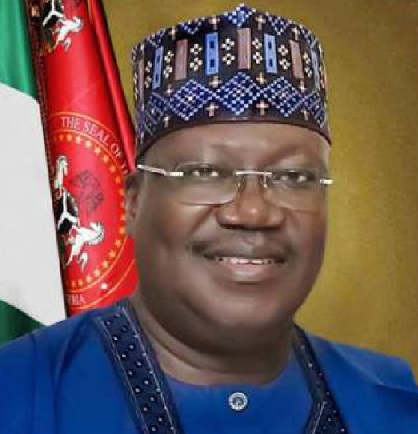
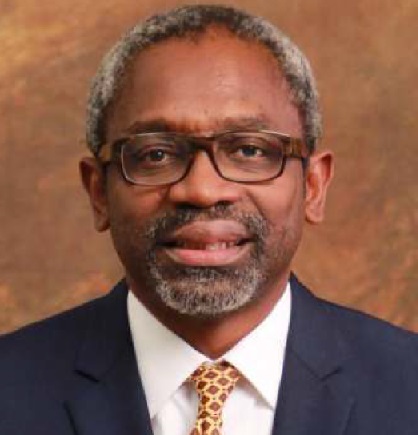
The constitution of Nigeria does not require that someone contesting election into the office of the president must have held an executive position, previously. That is why it cannot be said that a previous executive position is necessarily a guarantee that a candidate would do well if elected president. Examples abound of presidents who came into office without any experience in government, whether at the executive, legislative or judicial branches.
Former American president, Donald Trump, assumed office in 2017 without any previous experience in any branch of government. In fact, he had no public sector experience. He had been a private sector player all is working life, having taken over his father’s business immediately he graduated. But his record as president cannot be said to be the worst in the country’s history. He would probably have won re-election in 2020 if not for his poor handling of the COVID-19 pandemic, as well as pursuit of a foreign policy that was totally alien to what America has traditionally been identified with, which saw him alienating the country’s European allies and courting the friendship of its foes, including dictators like the leaders of Russia, China and North Korea.
Russian president, Vladimir Putin, spent all his public life in the KGB, the country’s equivalent of America’s Central Intelligence Agency, or Israeli Mossad, rising through the ranks to get to the top. For more than two decades, he has been that country’s prime minister and president, at different times.
In Nigeria, 16 political parties will field candidates for the presidential election scheduled for Saturday, February 25, 2023. Four out of this number have experience in government for the same period – eight years – though not all have held executive positions. Twelve of the candidates have neither held public office in any branch of government, nor have stood for election into any office. They will have to rely on the successes they recorded in their various fields of endeavor to be able to convince the electorate of their ability to run a crisis-ridden country that is in dire need of a leader that can change the course of its history.
Knowledge of the economy
It is an established and acceptable fact that Nigeria’s problem is more economic than political, or social. Solve the economic problems, and the socio-political problems would be significantly reduced, if not eliminated. The seemingly intractable problem of insecurity is tied to the economy, since there is a nexus between poverty and crime. The spiraling crime rate in the country, ranging from common stealing to organized crime, like armed robbery, kidnapping for ransom and human trafficking, as well as exodus of youths to other parts of the world in search of the proverbial greener pastures, are a direct consequence of the socio- economic inequality that is caused by gross imbalance between the haves and the have-nots. This, essentially, is fallout of the mismanagement of the country’s economy, despite its abundance in human and material resources.
For the choice of Nigerian president in the post-Buhari era, the electorate is going to be looking out for a candidate with deep knowledge and understanding of the country’s economic problems and, most importantly, a clear idea of what is needed to solve them. They will be interested in a leader who will be on the same page with his economic advisers because he has a full grasp of the issues they tell him, and not one that would take every advice in full bucket, whether or not it is sound, because he has no personal knowledge and understanding of the issues.
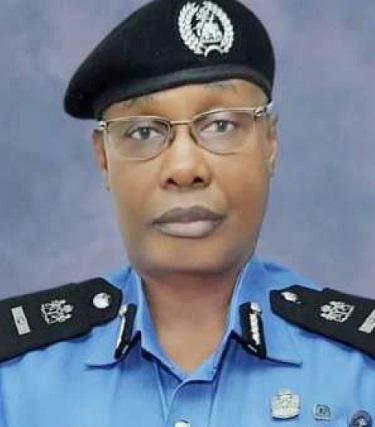
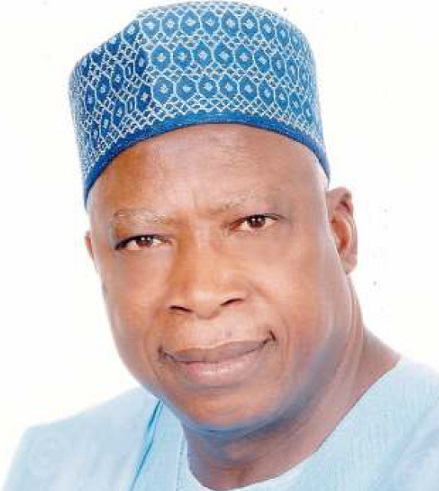
As the campaigns begin and the candidates crisscross the country to market themselves as individuals, as well as their parties’ programmes, it will be possible for the electorate to know who fits this bill.
Knowledge and understanding of economic issues is an imperative for a president that would have occasion to speak at different fora, both local and international, sometimes impromptu, where such knowledge would need to be on display. He would be expected to answer questions from people are probably more knowledgeable than him on economic issues. This would include unarranged press interviews. Such a president would not be handicapped by inability to turn to prepared speeches to be able to participate in events of that nature.
An example is the World Economic Forum that is held annually in January in Davos, Switzerland, where world leaders gather to discuss economic issues that affect the world. The highest level of discussions at that event has only presidents, prime ministers and heads of state and governments as participants. It is an occasion that does not allow a participant the luxury of reading from prepared speeches.
It is not necessary that such a person holds a university degree in Economics, since possession of the certificate alone does not guarantee ability to proffer solutions to the socio-economic problems the country faces today. In other words, possession of an Economics degree is not a sine qua non for holding office as Nigeria’s president. What is required is a deep insight into the factors that have militated against the country’s economic growth over the years, which have made its position as Africa’s largest economy not reflect in the standard of living of the people.
This should be based on a full understanding of the workings of the country’s economy, in particular, and world economy, in general.
Knowledge of international affairs
Nigeria is not an island. It is a member of a world community that has shrunk in size to that a village – hence, the description of the world being a global village. A development in one country is likely to have an effect on other countries, in some cases, all the other countries of the world.
The global financial crisis of 2008 had its roots in what happened on Wall Street, New York, the United States. The COVID-19 variant of the Coronavirus that grew to become a global pandemic in 2020 started in the city of Wuhan, China, in November, 2019.
In the world of today, the president of any country must be personally abreast of developments around the world, without having to rely on official briefings from aides and media reports to know what happens outside his domain. He must not only show keen interest in what happens in other climes at any time, but must also be interested in looking for ways and channels through which he could have access to information on other countries and their leaders. This could mean exploring official and unofficial channels.
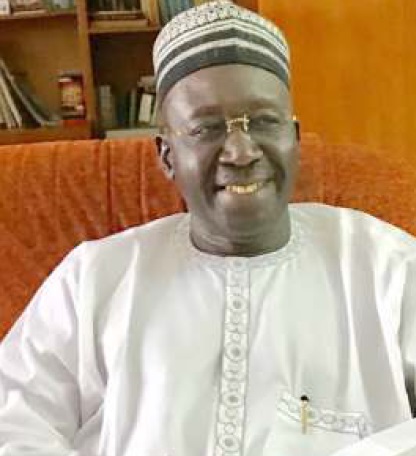
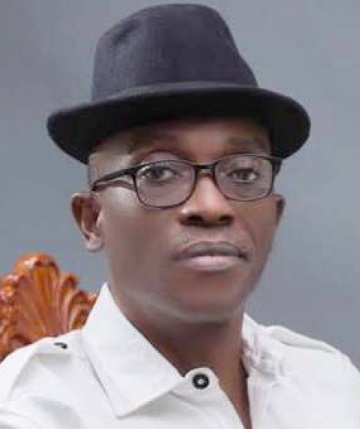
Nigerians are not going to be interested in a president whose deficiency in the understanding of international affairs could be a source of embarrassment to the country. For instance, it shouldn’t be imagined that Nigeria would have a leader who cannot participate effectively in impromptu discussions on important international issues with other world leaders, due to lack of understanding of the issues being discussed.
The country’s voting population is largely illiterate. A higher percentage of voters is not educated enough to vote based on issues. A majority of voters make choices based on sentiments, which could be ethnic, religious, the need to flow with the crowd in the locality, or even admiration due to factors that may have nothing to do with competence or suitability for the job. However, with the growing awareness of issues of general importance which affect their lives and the readiness of more Nigerians to participate in the country’s democratic process, greater attention is going to be paid to issues, than personalities or parties.
The surge that was witnessed during the closing days of the continuous voter registration exercise, which involved mostly educated youths, shows that more enlightened voters with greater awareness of political issues have joined the democratic process. These people are not going to vote based on ethno-religious sentiments, but on issues that determine a candidate’s suitability and readiness for the job of piloting the affairs of the country.
From their public statements; the views and opinions they express, it is not difficult to know who, among the candidates in the 2023 presidential election, is knowledgeable about world issues. The candidates have been making public statements and comments on issues that should interest the electorate. As campaigns commence, some questions are going to agitate the minds of voters.
Who, among the candidates, is talking about issues and developments that occur outside the shores of Nigeria, in relation to what is happening in the country and affecting Nigerians? Who is focusing comments on issues that occur locally, as though Nigerians shouldn’t be concerned about what is happening in other parts of the world, even if those things have a direct bearing on their lives?
Vision
The general belief that the problem of Nigeria is rooted in bad leadership has to do with the fact that the country has not been blessed with leaders that could correctly be described as visionary, from the list of those that have had the opportunity of piloting its affairs. It is hardly possible to point to a Nigerian leader that came into office with a clear idea of what he wanted to do with power, or a vision of where he wanted to take the country. This is majorly because most of the leaders that have ruled the country, especially since independence, have had power thrust on their shoulders. While military leaders suddenly found themselves in power through coups organized by a handful of soldiers, their civilian counterparts emerged because they were the choices of few individuals who packaged and sold them to the public, aided by a flawed electoral process.
More than six decades after he left office and more than 30 years after his death, Obafemi Awolowo is still remembered for revolutionizing education in the former Western Region with a free education programme that ensured a good number of the people in the area were educated. It is the reason the current South West geo-political zone has had the highest number of professionals in such areas as law, accountancy and medicine over many years. He is remembered for building the first industrial estate in the country, which accounts for the fact that the area has the highest concentration of industrial establishments in the country.
Awolowo is remembered for setting up the first television station in Africa and the sixth in the world, after the United States, United Kingdom, Germany, Australia and Italy.
Looking back at the country’s journey since independence, it is difficult to recall a leader who could be remembered for the significant milestone he recorded while in office. The life of the First Republic was cut short by the first military coup of January 15, 1966, making it difficult to correctly assess the performance of the country’s first prime minister, Abubakar Tafawa Balewa. From General Yakubu Gowon who ruled for nine years, through General Obasanjo’s three-year tenure; Shehu Shagari’s four years; General Ibrahim Babangida’s eight years; General Sani Abacha’s five years; President Obasanjo’s eight years; President Goodluck Jonathan’s five years, up to President Buhari’s seven years so far, none can be rightly said to match the description of a visionary leader.
If Nigeria had a visionary leader, a country that was ranked 40 the richest in the world at independence in 1960 would not be the poverty capital of the world, 62 years later. If any of the past leaders, up to the present, was a man of vision, a country that was one of the world’s leading agricultural nations at independence, depending on it for its foreign exchange earnings, would not be a net importer of food today. If Nigeria had a visionary leader, a country that is a major oil producer would not be depending on imported petroleum products, with four refineries permanently in a coma.
From June, 2022 when political parties completed the process of electing candidates for the 2023 general election, presidential flagbearers have focused their attention on setting up campaign structures. The electorate has not heard from any one of them what they have to offer the country if elected president.
That is apparently because the 2022 Electoral Act stipulates that campaigns for elections cannot start earlier than 150 days to the election. The exercise is kicking off in September, 2022, and will provide an opportunity for Nigerians to separate the wheat from the chaff – those who merely wish to be on record as having contested election to be president of Nigeria and those who are serious in bringing about the change a disillusioned citizenry desperately needs.
With an increasingly enlightened voting population, voters are going to be interested in a candidate who clearly understands the meaning of vision, with an outline of where he intends to lead the country if voted into office. Nigerians are fed up with leaders who promise a plethora of programmes that are encapsulated in a vision that is largely vague, but end up delivering little or nothing, once voted into power.
The electioneering period is going to allow Nigerians scrutinize what the candidates would present as vision, and determine what is realistic and implementable, given their experience with past elected officials. It will enable voters to determine the candidates with clear vision, and those with no idea of what could be described as vision.
Capacity
If experience in governance were the only criterion for becoming Nigeria’s president in the next dispensation, it would be easy to conclude that anyone with such a record is the president the country needs in 2023. But it goes beyond having ben in government before. The question is – did the candidate demonstrate sufficient capacity for the office he held previously? Are there landmark achievements as proof of that capacity?
The office of the president and commander-in-chief of the armed forces of Nigeria at this critical moment of its history is not that of a local government chairman. It is not the office of a state governor. Nor is it the office of a senator or House of Representatives member. The office of the president of 2023 requires someone who would not be overwhelmed by the myriad of challenges that has brought the country almost on its knees. Nigeria is currently on life support, and requires the dexterity of an expert surgeon to bring it back not only to full consciousness, but to also stand on its feet and live to realize its potential. The job requires a leader with mental, physical and physiological capacity to take bold and hard decisions when they are needed – someone who would not shy away from demonstrating the political will to do what is right and in the best interest of the nation, no matter whose ox is gored.
The electorate would be looking out for a leader who would able to rise above sentiments – religious, ethnic, economic and social – to take actions that would result in the improvement of their standard of living. Such a leader must show character and competence in his handling of issue of public importance.
The requirement of capacity is not limited to those that have held public office before. Leaders abound around the world who have been successful in their first stint in public office.
Trump’s first demonstration of capacity to take hard decisions was his announcement, upon assumption of office, that he was voted by the American people to be their president, not president of the world. He introduced the America First policy that sought to protect the interest of the American people first, before the interests of allies and friends of America. The policy predictably hurt America’s allies, especially in Europe. But it was welcomed by the American people. He proceeded to erect a wall to physically separate the United States from Mexico, alleging that the free and unfettered entry of Mexicans into his country was inimical to the latter’s socio-economic and, to some extent, political interests.
Nigerians recall, with relish, the two instances Vice Preisdent Yemi Osinbajo demonstrated capacity as the kind of leader the country needs at this time, during the brief period of his tenure as acting president when Buhari was on one of his many medical trips to the United Kingdom. One was his use of dialogue to achieve peace in the troubled Niger Delta region after Operation Python Dance, the military operation deployed by the armed forces, failed to achieve the same purpose.
Before Osinbajo’s designation as acting president, Nigeria’s oil production had plummeted from close to two million barrels a day to below 800, 000 barrels, due to youth restiveness in the region, despite the presence of the military in the region – an operation that was supposed to restore calm in the area for oil production activities to thrive. But within two weeks of the acting president’s shuttle diplomacy that took him to all the nine oil bearing states where he held town hall meetings with different stakeholders, peace returned to the area, which saw daily oil production double to more than 1.6 million barrels per day.
His second demonstration of capacity was when he fired Lawal Daura, director of the Department of State Service, on August 7, 2018, the day operatives of the agency laid siege to the National Assembly in what was seen as a continuation of the frosty relationship that existed between the legislature and the executive. The National Assembly was then led by Senator Bukola Saraki as president, who did not enjoy Buhari’s support.
For Buhari’s successor, Nigerians are going to be interested in a president who can take such decisions without the fear of stepping on toes, or ruffling feathers.
Acceptability across ethno-religious lines
In the Second Republic, all the four service chiefs in the administration of President Shehu Shagari, a Fulani Muslim from Sokoto State, were at a time all Christians, from three of the six geo-political zones of the current Nigeria. Lt. General Alani Akinrinade and Vice Admiral Akin Aduwo, chief of army staff and chief of naval staff, respectively, were from the current South West geo-political zone. Lt. General Gibson Jalo and Air Vice Marshal Yisa Doko, chief of defence staff and chief of air staff, were from today’s North East and North West, respectively. Muslims did not raise an eyebrow or complain about the non- inclusion of one of their own among the service chiefs. Nobody thought about religious or ethnic balancing.
On June 12, 1993, Christians closed their eyes to the Muslim-Muslim ticket that had Chief M.K.O Abiola and Ambassador Babagana Kingibe as presidential and vice-presidential candidates, respectively, of the Social Democratic Party and voted for that ticket. On that occasion, Nigerians voted for what they saw as competence, chiefly on account of Abiola’s accomplishments in the private sector, his immense popularity and goodwill that spread across the length and breadth of the country, as well as Kingibe’s record as a former career ambassador.
Today, Nigeria has been so divided along ethnic and religious lines the two issues are going to be a factor in the consideration of many voters. These divisions have created an unprecedented degree of suspicion among the different ethnic groups and among adherents of the two major religions in the country. The president of the post-Buhari era must be a leader who can effectively manage Nigeria’s diversity and return the country to the period when ethnicity and religion played little or no role in public affairs.
Among the presidential candidates that will seek the mandate of Nigerians on February 25, 2023, voters will look for the one with appreciable degree of acceptability across ethnic and religious lines. This acceptability will be determined by the candidates’ known position and utterances on issues that bother on the two issues. That is to say that a candidate’s position, statement or action on issues of ethnicity and religion that was made many years ago may come back to work for or against him in 2023.
In choosing a president for the country in next year’s election, some questions may bother the minds of a good number of voters. What does a candidate think of a religion and tribe other than his own? How has he been known to treat the other religions and ethnic groups, through actions, statements and views? Has he done or said anything in the past that could portray him as an ethnic champion and religious bigot who is intolerant and unaccommodating of others? What is the public perception of him regarding his relationship with a religion that is not his own? Can he be trusted to run a government whose composition would reflect the country’s diversity in all the areas, in such a way as to guarantee the unity it needs at this time? Do Nigerians have any reason to believe that he would run a government that supports the view in some quarters that religion and ethnicity should not be an issue in today’s Nigeria, or will his actions as president reinforce the belief in some quarters that those two factors cannot be overlooked? These questions would be answered based on candidates’ antecedents.
Integrity
A major ingredient of leadership that has been known over the years to be lacking in Nigeria is integrity. It is one of the reasons the country’s problems which have manifested in its slow pace of development since independence have always been blamed on bad leadership. The country has not been blessed with leaders that could be said to be very rich in integrity, at all levels of government, in all the branches of government.
Integrity or lack of it in government could be looked at from two broad perspectives, namely, ability or inability to stay away from abuse of office through involvement in corrupt practices, and upholding or ignoring the sanctity of promises made.
Nigerian leaders, whether military or democratically elected, have always enjoyed immunity from investigation and prosecution. A military leader who rules with fiat as a dictator is not answerable to anyone except, perhaps, his colleagues who played active roles in the coup that brought him to power. The only check on him does not come from any law or institution, but from his colleagues who could remove him through the same process that brought him into office.
In the case of a democratically elected president, the constitutional provision of immunity guarantees him freedom from investigation and prosecution while in office. Although he could be prosecuted after leaving office, it is taken as a given that such would not happen in a country like Nigeria, where ethnic and religious sentiments would give it an interpretation of witch hunt.
There is also the spirit of camaraderie among past and present leaders that would not allow a former president to be brought to trial for actions he took while in office, even if on an issue as serious as corruption. There’s a belief in the country that if the late military head of state, General Sani Abacha, were alive, none of the leaders after him would make any move to retrieve the monies he stole while in office, which has now amounted to over $3.6 billion.
Lack of integrity is not only about involvement in corrupt practices. It is also about failing to fulfil promises made during electioneering, when a candidate canvasses for votes from the electorate. The common understanding among elected leaders that they are not held accountable for the promises they made while seeking voters’ mandate once they get into office seems to embolden them to make promises they know they would not fulfil.
The absence of a history of bringing former presidents to trial for actions that bordered on integrity, as is common in other parts of the world, makes it seem as though it is a virtue that is not necessary in choosing a leader in Nigeria. This has given rise to the belief that integrity does not matter in Nigeria, because one man’s devil is another man’s angel. It is left for voters to determine a candidate that has integrity and the one that does not have, based purely on perception.
In the 2023 presidential election, voters will be keen on voting in a president that has integrity. None of the candidates has been proven to be lacking in integrity, as far as the issue of corruption is concerned. It is going to be left to the electorate to determine the candidate that is perceived to have the integrity to run a country where corruption walks on four legs.
Many questions will play in the minds of voters who are desirous of seeing the emergence of a new Nigeria that would not occupy unenviable positions in the annual corruption index of Transparency International. Has a candidate been involved in any corruption-related scandal in the past, whether or not that scandal was investigated and proven to be true? Which of the candidates can be trusted to keep his words if elected into office?
The next five months are going to be crucial in the history of electioneering in the country. The marked departure from previous elections would be the interest the electorate would show in issues, more than anything else.
The Front Runners
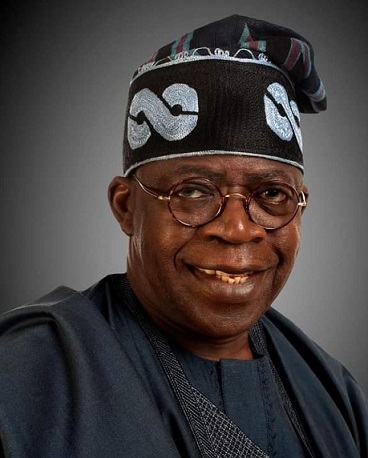
Bola Ahmed Tinubu
Set to realize his life ambition?
Asiwaju Bola Ahmed Tinubu, the All-Progressives Congress (APC) presidential candidate for the February 25, 2023 election, has come a long way in Nigerian politics. Tinubu has, since the early 1990s, built himself into a one-man political institution that was instrumental to the birth of three formidable political parties which provided him solid platforms to dominate Lagos State politics and remain an influential voice at the national level.
He was elected senator in 1992 on the platform of the Social Democratic Party (SDP), the centre-left party created by military president, General Ibrahim abangida; became Lagos State governor in 1999, ruling two terms under the Alliance for Democracy (AD) and Action Congress of Nigeria (ACN), and was instrumental to the formation of APC in 2014, emerging as its national leader.
During this period, he built massive political structures across the South West and some parts of the country, acquired stupendous wealth and groomed loyalists and associates to occupy powerful offices at state and Federal levels. They include governors, legislators, ministers, Vice President Yemi Osinbajo, special advisers and heads of Federal agencies. As it turned out, he did all these as a deliberate effort to build structures to achieve his life-time ambition of becoming Nigeria’s president.
His entry into the race to succeed President Muhammadu in 2023 is anchored on his belief that it is now his turn to move from being a king maker to becoming king. He made this clear the day he visited Buhari in Abuja to intimate him of his desire to succeed him. He would re-emphasize this belief in his now famous Emi lo kan (It’s my turn) speech in Abeokuta when events leading up to the APC presidential primary seemed to suggest he might be schemed out of the race.
Personal accomplishments Tinubu attended Richard Daley College, Chicago, Illinois, United States, where he earned himself a place in the honours list of the institution. He proceeded to the Chicago State University, Illinois, where he obtained a Bachelor’s degree in Business Administration (Accounting and Management).
Upon graduation with honours and several awards, Bola Tinubu cut his professional teeth at the American-based Arthur Anderson, Deloitte Haskins and Sells (now called Deloitte Haskins and Touche) and GTE Service Corporation – the largest communication and utility company in the United States. On his return to Nigeria, he joined Mobil Producing Nigeria as a senior auditor, rising to the position of treasurer before retiring.
As a pragmatic, charitable and grassroots person, Tinubu saw communal service as a veritable tool for social development. He never hesitated to serve his community, spearheading several financial contributions and fund-raising for community development programmes in Lagos State. He led Primrose Group, a political action organization pushing for fundamental changes in the politics of the state.
His first foray into active politics was as a founding member of SDP. In 1992, he was elected as a senator to represent Lagos West Senatorial District. At the National Assembly, he served as the chairman of the Senate Committee on Banking, Finance, Appropriation and Currency.
With the annulment of the June 12, 1993 Nigerian presidential election and the consequent fresh militarization of the Nigerian politics, Tinubu became a founding member of the famous pro-democracy group, the National Democratic Coalition (NADECO) which, for several years, engaged the military for the political soul of Nigeria. As would be expected in a dictatorship, Tinubu suffered many arrests, detentions, harassments and constant threats to his life, forcing him to flee the country. He, however, did not give up the struggle as he joined the Diaspora wing NADECO to continue the agitation for the restoration of democratic governance and civil rule in the country.
In 1998, Tinubu returned to Nigeria to join in the effort to establish a new democratic dispensation. He got elected governor of Lagos State in 1999 in what would be a two-term tenure.
Political career
Accounts of Tinubu’s political antecedents can fill a book of many volumes. Suffice it to say that, in the last three decades, he has bestridden the Nigerian political landscape like a Colossus, transforming himself into one of the most powerful politicians in Nigeria’s contemporary political history. Any politician from Lagos state who became somebody during this period – governor, deputy governor, minister, senator, amongst others, did so on the back, reputation and goodwill of the maverick former governor. Similarly, those who fell from political grace to grass owed their misfortune to their impudence to challenge Tinubu or failure to reckon with him.
Tinubu’s sphere of absolute political influence, till date, extends to other southwestern states of Ogun, Ondo and Ekiti. His influence in Oyo and Osun appears to have waned significantly, as recent political events have shown. He determines the fate of state governors and other politicians – who gets elected or re-elected and who does not. In many other parts of Nigeria, he has created a sort of cult followership among all the strata of the political elite on account of his astute political craftsmanship and his winning strategies.
Tinubu proved to be a master political strategist when he survived the massive incursion of the ruling PDP into South Western states, emerging as the only re- elected governor of the party in 2003, after an Obasanjo-engineered and bizarre arrangement saw other AD governors supporting the latter’s second term bid on the promise of a Federal government support for their re-election, but which turned out to be a scam the governors fell for.
He was actively involved in the creation of the AD, (later ACN). Rallying like-minds across the country, he sold sound ideals and programmes on this fresh and new political platform. Within a few months, he transformed the party into a credible opposition to the PDP in the country.
Following the victory by PDP in the April 2007 elections, Tinubu was active in negotiations to bring together the fragmented opposition parties into a “mega- party” capable of challenging the PDP in 2011. In July 2009, he called for implementation of electoral reforms spelled out in the Uwais Report to ensure, the 2011 elections would be as free and fair as the elections of 1993 had been.
This move resulted in the formation of APC by Tinubu, alongside Muhammadu Buhari, in 2013. The goal was to build a party that would be strong enough to get rid of PDP. This objective was realized in 2015 when, for the first time in Nigeria’s political history, an opposition party defeated a ruling party at the federal level to take over power.
Tinubu took his first concrete step to actualize his life-time presidential ambition with the formation of APC. At birth, the party was a union of political forces loyal to him and Buhari, a sort of equal partnership in which the party’s national executive positions were shared between the two leaders. Tinubu reportedly conceded the party’s first presidential slot of two terms (eight years) to Buhari, settling for the honorary title of national leader.
The history of scuffles and instability in the national leadership of APC is generally believed to be the story of Tinubu’s presidential bid: he seeks to dominate the party’s structure and hierarchy which he could deploy to his advantage in the forthcoming presidential election. The removal of Adams Oshiomhole, his staunch loyalist, as the party’s national chairman in 2021 was interpreted in his camp as a calculated attempt by his opponents to scuttle his presidential ambition. The crisis created by Oshiomhole’s removal left the party without an elected leadership until April, 2022, when a new leadership emerged at its national convention in Abuja.
Credibility/integrity
Tinubu’s score on credibility and integrity is a mixed bag. It is in the nature of the murky waters of Nigerian politics that no one plays at the level Tinubu did and for the length of time he did without accumulating both accolades and scum, deserved or otherwise. Both the credit and debit sides of the APC presidential flagbearer’s political balance sheet in the last three decades are highly loaded with positives and negatives. The debit entries centre on the questionable status of personal records of his parentage, his age, schools attended, qualifications obtained, health status and source of his famed wealth (he reportedly claimed to be richer than the Osun State Government).
On the political front, the man who built his political career on the foundation of pro-democracy struggle is accused of undemocratic tendencies. These usually manifest in his intolerance of dissent and politically bruising brushes with his Deputies (Kofo Akerele-Bucknor and Femi Pedro); political godsons and associates (Akinwumi Ambode). He is accused of running a political fiefdom in Lagos, where he personally decides who holds what elective and appointive office – ward councilor, local government chairman, state assembly member, state assembly speaker, National Assembly members, commissioners, ministers, etc. He is also accused of still running the state, 15 years after he left office, through the proxies he puts in office as governors.
Tinubu has been accused of ideological contradictions reflected in the mismatch between rhetoric and actions. For instance, he is accused of failure to use his party to restructure Nigeria, a position he advocated fiercely from his days as a senator, but which he abandoned the moment APC came to power in 2015, after he saw his chance of also holding the levers of absolute powers at the centre, which he previously condemned.
Some credit entries in Tinubu’s political balance sheet include his capacity to design and deploy winning strategies to achieve political objectives and his outspokenness on any cause he believes in. He is also credited with being a successful governor of Lagos State with a knack for identifying and installing suitable successors who have kept the touch of performance glowing in Lagos State. He is regarded as a benevolent leader and godfather who grooms and nurtures his associates to great heights in politics and other endeavours.
For his excellent performance as governor of Lagos, Tinubu received several awards, including the Best Governor in Nigeria for Year 2000 by the Nigerian- Belgian Chamber of Commerce; 2002 Best Practices Prize in improving the living environment, awarded by the Federal Ministry of Works and the UN Habitat Group; Year 2000 Best Computerized Government in Nigeria Award by the Computer Association of Nigeria. Tinubu was conferred with the honorary Doctor of Law Degree by the Abia State University in recognition of his immense contributions to democracy, good governance and development of Nigeria. He is the proud recipient of numerous other chieftaincy titles and a patron of many professional and social organizations.
Tinubu is a born fighter who has in his arsenal all the resources he needs, and the wherewithal to overwhelm his opponents or charm his admirers on his way to the 2023 presidency. There can be no doubt, therefore, that he is one of the leading contestants in the race to occupy Aso Rock Villa, come May 2023.
The Front Runners

Atiku Abubakar
Looking to be sixth time lucky
Alhaji Atiku Abubakar, the presidential candidate of PDP in the 2023 election, holds the record as the Nigerian with the highest number of attempts at becoming the country’s democratically president, over the longest period. His current attempt is the sixth in his almost 29-year effort to hold what has remained the office of his dream.
He first contested as an aspirant against Chief Moshood Abiola for the presidential ticket of SDP in 1993; contested as a candidate on the platform of AC in 2007after leaving PDP. He returned to the party in time to contest for its presidential ticket in 2010 against President Jonathan who was contesting on his own merit after inheriting the remainder of what was meant to be the late President Umar Musa Yar’Adua’s first term. He lost the presidential ticket to the incumbent.
Atiku contested as an aspirant in 2014, losing the presidential ticket of APC to Buhari, and contested as the PDP candidate against Buhari in the 2019 presidential election.
Atiku alluded to his image of a perennial presidential candidate when he declared, while announcing his entry into the race for the PDP presidential ticket for the 2023 election, “I have contested for the office of the president of the Federal Republic of Nigeria a couple of times in the past. My enduring persistence is borne out of my passion to rekindle the Nigerian dream that I was privileged to live.” He said his return to the presidential race this time was in response to the yearnings of Nigerians: “Since our last fight in the court, challenging the 2019 election results, I have received several calls and encouragements from you to contest again. I have listened to your brave voices. Beyond the words coming out of your mouths, I could imagine your frustrations; yet you are hopeful. I admire you greatly for choosing hope over despair. I know why you are doing this. You are doing this because deeply you believe something good is possible and is coming to Nigeria.”
Personal accomplishments
Born on November 25, 1946, in a small village, Jada, in Adamawa State, Atiku is the only surviving child of his parents, Garba Abubakar, a Fulani trader, and Aisha Kande.
Atiku did not start his education until he was eight years old, because his father strongly opposed western education. When the government discovered that he was not attending mandatory schooling, his father was jailed for a few days until his mother paid a fine. He was subsequently enrolled in Jada Primary School before proceeding to Adamawa Provincial Secondary School in Yola, where he excelled in English Language and Literature. After graduation in 1965, he studied briefly at the Nigeria Police College in Kaduna, but left when he was unable to produce an O-level Mathematics result.
In 1966, he gained admission to the school of Hygiene in Kano after working as a tax officer in the regional ministry of finance, graduating with a diploma in 1967. With a regional scholarship, he enrolled for a Law diploma at the Ahmadu Bello University, Zaria, in the same year and completed the programme in 1969.
He joined the Nigeria Customs Service during the Nigerian Civil War, where he worked for 20 years, rising to the position of deputy director, the second highest position in the service, before retiring in April 1989. He went into business upon retirement from Customs, with interest in politics. In fact, he was involved in business while serving in the Customs, a practice that attracted to him accusation of conflict of interest, because it is against public service rules to work in government service and engage in private enterprise.
Before going into full time business, he had obtained a loan of N31, 000 with which he built his first house in Yola in 1974, which he put up for rent. From proceeds of the rent he purchased another plot and built a second house. He continued this way, building a sizeable portfolio of property in Yola. He veered into agriculture in 1981 by acquiring 2,500 hectares of land near Yola to start a maize and cotton farm. The business packed up in 1986.
Dogged in his ways, he ventured into trading, buying and selling truckloads of rice, flour and sugar. He got his big break in business when Gabrielle Volpi, an Italian businessman he met in the country, invited him to set up Nigeria Container Services (NICOTES), a logistics company, to operate at the ports. The company provided immense wealth for Atiku.
Political career
Atiku’s foray into politics was in the early 1980s, when he worked behind-the- scene in the governorship campaign of Bamanga Tukur, in the defunct Gongola State. Towards the end of his Customs career, he became acquainted with Shehu Musa Yar’Adua who had been second-in-command of the military government that ruled Nigeria between 1976 and 1979. In 1989, Atiku was elected a national vice chairman of the Peoples Front of Nigeria, the political association led by Yar’Adua, to participate in the transition programme initiated by the military Babangida.
He won a seat to represent his constituency at the 1989 Constituent Assembly, set up to decide on a new constitution for Nigeria. The People’s Front was eventually denied registration by the government (none of the groups that applied was registered) and found a place within the Social Democratic Party, SDP, one of the two parties decreed into existence by the regime.
He ran for the office of governor in Gongola State (later split into Adamawa and Taraba States) in 1991, and for the presidency in 1993, placing third after MKO Abiola and Babagana Kingibe in the SDP primaries. In 1999, he was elected governor of Adamawa State, and had yet to be sworn in when Olusegun Obasanjo, the PDP presidential candidate, selected him as his running mate.
They went on to win elections in February 1999, and were sworn in as the first president and vice president, respectively, in the Fourth Republic, on May 29, 1999.
In 2006, Atiku was involved in a bitter feud with his boss, Obasanjo, after it came to the latter’s knowledge that he nursed the ambition of succeeding him as president. The enmity between the two was aggravated by the fact that Obasanjo suspected his deputy as having a hand in the truncating of his widely believed attempt at getting the National Assembly to amend the constitution to allow for a third term for the president – a development that would have smoothened the way for him to extend is tenure beyond 2007.
Atiku’s stormy relationship with Obasanjo and his bid to succeed the latter met with stiff opposition. It took a judgment of the Supreme Court to allow him contest for the presidency after the Independent National Electoral Commission (INEC) had disqualified him on the grounds that he crossed over from PDP on which ticket he was elected into office into the Action Congress of Nigeria. He lost the election to Yar’Adua.
Atiku has, in the course of his political career, demonstrated a strong belief in the famous statement by the late sage, Chief Obafemi Awolowo, that what matters in a man’s life is not how many times he falls, but his ability to get up each time he falls. After his loss to Yar’Adua, he revved up his high mobility by returning to PDP in time to contest for the party’s 2011presidential ticket with President Jonathan, and lost. And when some PDP governors and stalwarts rebelled against Jonathan in 2014 over his insistence on running for a second term despite an earlier promise he was said to have made to hold office for one term, Atiku joined them under the auspices of the New PDP to cross over to the newly formed APC – in continuation of his search for a platform on which to realise his presidential ambition. He returned to PDP in 2017 after remaining totally anonymous in APC, having lost the presidential ticket to Buhari who went on to win the 2015 election against Jonathan.
In a development that surprised Nigerians, Atiku received the warm embrace of his former boss and erstwhile foe, Obasanjo, who publicly endorsed him for the 2019 election. Before then, the former president had made it a duty to attack his former deputy at every given opportunity – in his books, public speeches and articles – always painting a picture of a man who was too morally bankrupt to be trusted with the office of the president of Nigeria. He lost the election to Buhari.
Credibility/integrity
A lot of allegations of corruption have been levelled against Atiku. While most of them emanated from unproven media reports, most were orchestrated by Obasanjo. But, till date, the former two-term vice-president has never been charged before any court of law, let alone convicted, of any act of corruption, either within or outside Nigeria. This has led to conclusions that the perception of corruption was foisted on him by suspicions of the source of his humongous wealth, and political bad blood. Atiku remains a critical fixture in Nigerian politics, with millions of supporters all over the country.
National outlook
Atiku’s claim to national reach began in early 1990s when he inherited the late General Shehu Yar’Adua’s political structures. Since then, he has been consolidating his national political network in every presidential election cycle as a contestant and as a two-term vice-president. Today, his network of fanatical supporters runs into millions, organized into numerous support groups.
This critical support base insists that the former vice president possesses the attributes of a unifier. He is also regarded as a remarkable wealth creator and broad-minded leader that is at home with the ever-changing socio-economic dynamics, which they reason would be an asset, should he become a president.
The Front Runners

Peter Obi
Emergence of a third force
Nigerians who lost faith with the two major parties – APC and PDP – had hoped for the emergence of a third force that could challenge the status quo and become an alternative in the 2023 presidential election. Peter Obi, the candidate of the Labour Party, appears to be that force. Obi comes into the race with a reputation for a remarkable and successful life in the private sector, as well as sterling performance in public service as a two-term governor of Anambra State.
His credentials (educational, as well as accomplishments in the private and public sectors) became an issue when Atiku Abubakar nominated him as his presidential running mate in the 2019 general elections on the platform of PDP. Many accused him of desperation for accepting to be running mate to someone who was not better qualified than him to be president of Nigeria.
Personal accomplishments
Obi, fondly called “Okwute” meaning “Rock,” was born on July 19, 1961 at Onitsha. He had his secondary school education at Christ the King College, Onitsha. In 1980, Obi proceeded to University of Nigeria, Nsukka, where he graduated with a B.A (Hons) in Philosophy, in 1984.
His love for academic pursuits took him outside the shores of Nigeria to Ivy League and Oxbridge schools. He is an alumnus of Harvard Business School, Boston, USA; London School of Economics, where he studied Financial Management/Business Policy; Columbia Business School, New York, USA (Marketing Management); Institute for Management and Development, Switzerland; Kellogg Graduate School of Management, USA, Oxford University and Cambridge.
Before his adventure into politics, Obi was a very successful businessman. He held high profile positions in several establishments. Some of the companies he served include: Next International Nigeria Limited; Guardian Express Mortgage Bank Limited; Guardian Express Bank Plc; Future View Securities Limited; Paymaster Nigeria Limited; Chams Nigeria Limited; Corp Limited, as well Card Centre Limited.
He was the youngest chairman of Fidelity Bank Plc. In addition to the aforementioned, he was appointed by former President Goodluck Jonathan as the Chairman of the Securities and Exchange Commission (SEC). Obi is also a member of the Nigerian Economic Summit Group (NESG), the Chartered Institute of Bankers of Nigeria and the British Institute of Directors (IOD).
Political career
Obi began his political career in 2003 when he contested for Anambra State governorship election on the platform of the All Progressives Grand Alliance (APGA). His main opponent in the election, Dr. Chris Ngige, was declared winner in an election that was not seen to have passed the test of fairness, freeness and credibility. Obi challenged the result in court for almost three years and eventually got the Supreme Court to overturn Ngige’s victory, subsequently assuming office on March 17, 2006.
After seven months in office, the state house of assembly, which was dominated by a hostile opposition party in the state (PDP), impeached him. Mrs. Virginia Etiaba, his deputy, was sworn-in to take over from him, making her the first female governor in Nigeria’s history.
Obi returned to the court to challenge his impeachment, got it annulled by the Appeal Court, and was re-instated as governor on February 9, 2007. In the governorship election that was held that same month, Andy Ubah of PDP was declared winner and sworn in on May 29, 2007. Obi, who by then had become a veteran of court battles, returned to the court to challenge Ubah’s emergence as governor, arguing that he did not complete is first four years as governor.
In a landmark judgement, the Supreme Court ruled that as at May 29, 2007, the day Ubah assumed office, the Government House at Awka was not vacant, as there was still an occupant in the person of Obi, and there could therefore not have been any reason for someone else to be sworn in to take his place. It declared that Ubah was never elected governor, and authorized the swearing in of Obi to complete his first term. The development marked the beginning of staggered and off season elections in Nigeria, away from the February calendar for the majority of states in the country, as well as national elections.
Obi contested for re-election in 2010 and won, going on to rule for eight years, after which he was succeeded by Willy Obiano in 2014. He contested as running mate to Atiku on the platform of PDP in the 2019 presidential election, losing to Buhari.
Obi had warmed up for the presidential primary of PDP for the 2023 election, but was forced to defect to the then unknown Labour Party after seeing clear signs that suggested he stood no chance in an election which was going to be determined by delegates that were selected by state governors. Since then, his profile in the presidential race has risen in a manner that is nothing short of a phenomenon.

Credibility/integrity
As stated earlier, Obi’s unique selling point in the presidential race is his integrity and credibility. He has no baggage of credibility issue to contend with, as far as corruption – in his educational attainment, source of wealth and performance in office – is concerned.
Femi Akintunde-Johnson, a public affairs commentator, says “…Obi appears like one of the brightest persons that should lead these disparate nations blithely called Nigeria into the next decade: well educated, well trained, well prepared; he comported himself above average in governance; and remarkably prudent in the management of state resources.”
Most of the honours and recognitions awarded Obi over the years derive from his solid reputation. The roll: Man of the Year, The Sun Newspaper, 2007; Most Prudent Governor in Nigeria, Thisday Newspaper, 2009; Nigeria’s Most Trustworthy Governor, Champion Newspaper, 2009; Governor of the Year, West Africa ICT Development Award, 2010; Zik Leadership Prize, 2011; Best Performing Governor on Immunization in South-East Nigeria, Bill & Melinda Gates Foundation, 2012; Leadership and Good Governance Award, Ezeife Leadership Foundation, 2012; Golden Award on Prudence, Methodist Church of Nigeria, 2012; Man of the Year, Business Hallmark Newspaper, 2012; Man of the Year, Silverbird, 2013; Award for Outstanding Example in Leadership and Governance,
The Voice Newspaper, 2014; Most Outstanding Igbo Man of the Decade, Champion Newspaper, 2014; and the Golden Merit Award, Nigerian Library Association, 2014.
National outlook
Obi has a network of friends, associates and supporters across the country, built over the years during his service in the private and public sectors. That network was boosted when he crisscrossed the country on a campaign stump as the presidential running mate to Atiku in 2019. Although PDP lost that election both at the polls and in the courts, not a few of its members still believe the results were manipulated to the advantage of the ruling APC.
Now that Obi is back in the presidential race on his own ticket, he stands shoulder-to-shoulder with the frontline contenders. Considering all electable variables, Obi undoubtedly is one of the three leading presidential hopefuls to look up to in the 2023 presidential election.

